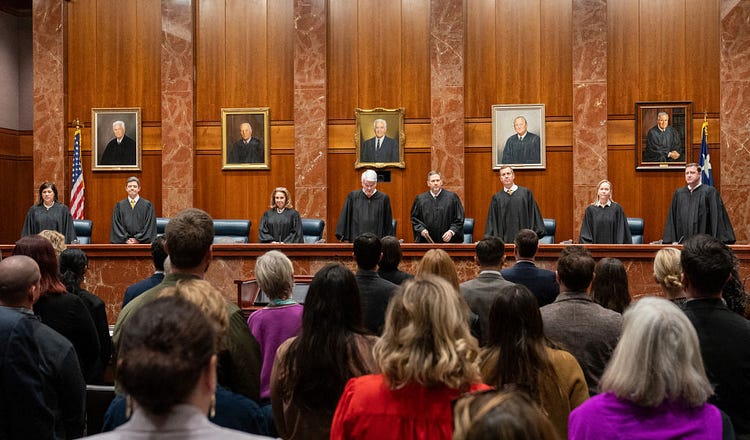Weekend Listening: Honest Conversations About Abortion

Texas Supreme Court justices at an abortion case hearing in November. (Photo by SUZANNE CORDEIRO/AFP via Getty Images)
The case of Kate Cox and the importance of difficult discussions.
935
Free Press readers are the rarest of communities in 2023 America: we don’t all agree.
We are a group of more than half a million readers who disagree passionately—but who, for the most part (ahem; I won’t name commenters but we know who you are)—respect one another’s views.
The same goes for those of us who are building The Free Press. Editors and writers…
Continue Reading The Free Press
To support our journalism, and unlock all of our investigative stories and provocative commentary about the world as it actually is, subscribe below.
$8.33/month
Billed as $100 yearly
$10/month
Billed as $10 monthly
Already have an account?
Sign In


